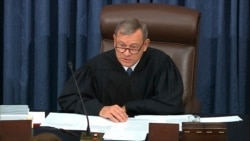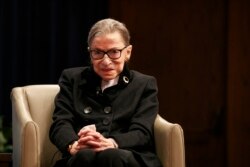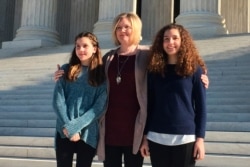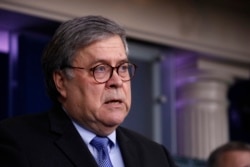The Supreme Court ruled on Tuesday that the state of Montana’s exclusion of religious schools from a tax credit program for scholarships is unconstitutional, delivering an important victory to advocates of school choice and public funding for religious education.
The 5-4 ruling along ideological lines marks a big win for the Trump administration, which has elevated the cause of religious freedom and sided with three mothers who challenged Montana’s ban on using publicly funded scholarships for religious education.
Writing for the conservative majority, Chief Justice John Roberts said the ban “discriminated against religious schools and the families whose children attend or hope to attend them in violation” of the U.S. Constitution’s free exercise of religion clause.
“The Free Exercise Clause ‘protects religious observers against unequal treatment’ and against ‘laws that impose special disabilities on the basis of religious status,’ Roberts wrote, citing a previous court decision on religious liberty.
The court’s four liberal justices dissented from the majority opinion.
“Because the state court’s decision does not so discriminate, I would reject petitioners’ free exercise claim” under the U.S. Constitution, liberal Justice Ruth Bader Ginsburg wrote.
The U.S. Constitution’s first amendment protects the “free exercise” of religion and prohibits the government from “establishing” a religion. State constitutions have similar provisions.
The question before the justices was whether the so-called Free Exercise Clause barred Montana, a state in the western United States, from denying public benefits such as scholarships to students at religious schools.
In 2015, the state legislature in Montana established a program that provides tax credits to people who give money to organizations that award scholarships to students at private schools. Most private schools in Montana have religious affiliations.
The Montana constitution prohibits government funding for religious institutions. In keeping with this separation of church and state provision, the Montana department of revenue ruled that the scholarships could not be used at religious schools.
Three mothers with daughters at a Christian school challenged the rule. They argued that the state discriminated against them “on the basis of their religious views and the religious nature of the school they had chosen.”
The Montana Supreme Court ruled against them, striking down the program as a violation of the state constitution. That led the mothers to appeal to the U.S. Supreme Court. The Trump administration sided with them as did a host of religious rights advocates.
In the majority opinion, Roberts wrote that the U.S. Constitution’s Free Exercise Clause barred Montana from applying its “no-aid provision” to religious schools.
In addition, he wrote, “the Montana Supreme Court had no authority to invalidate the [tax credit] program on the basis of that provision.”
The U.S. Supreme Court is the court of last resort in the United States and its rulings become the law of the land. That means that states may no longer exclude religious schools from their private education assistance programs.
The White House hailed the ruling as a victory for school choice and religious freedom.
“The Trump Administration believes that school choice is a civil rights issue, and that no parent should be forced to send their child to a failing school,” White House press secretary Kayleigh McEnany said in a statement. “President Donald J. Trump will fight for school choice, and he will always defend our first freedom: the free exercise of religion.”
School choice – or the ability to attend a school other than a public school in your neighborhood – is a long-running controversy in the United States. While conservatives say parents and students should be given a choice, liberals say this would undercut public education.
Attorney General William Barr called the decision "an important victory for religious liberty and religious equality in the United States."
"As the Court explained, religious people are 'members of the community too,' and their exclusion from public programs because of their religion is “odious to our Constitution” and “cannot stand,'" Barr said in a statement.
The Justice Department had filed a brief in support of the three mothers.
School teachers and other advocates who campaigned for a ruling in their favor denounced the decision as an assault on public education.
Randi Weingarten, president of the American Federation of Teachers, said the opinion represented "a seismic shock that threatens both public education and religious liberty."
"It is a radical departure from our Constitution, American history and our values," Weingarten said. "As Justice Sonia Sotomayor said in her dissent, this ruling is ‘perverse.’”








